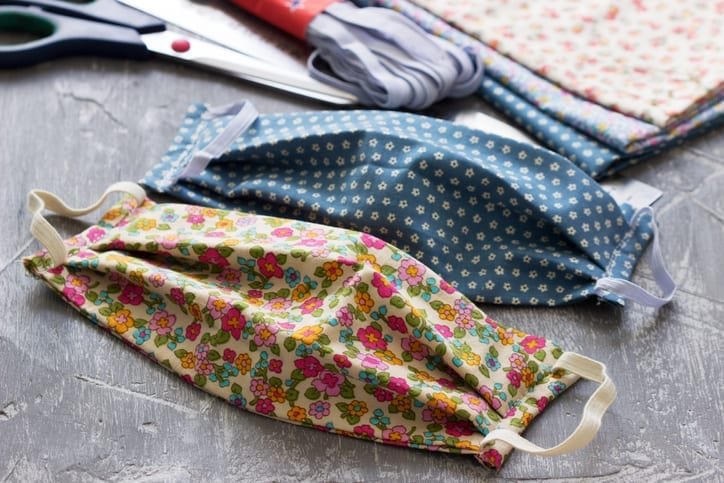As England joins Scotland, France, Germany and Spain in making face coverings compulsory in shops, the government, World Health Organisation, EU European Centre for Disease Prevention and Control and other experts say that reusable masks are effective when used correctly.
Throwaway plastic masks are not inherently safer for members of the public than reusable ones, and they present an enormous risk to the environment and wildlife.
129bn masks per month
Globally we are already using 129 billion face masks and 65 billion plastic gloves every month, according to some estimates.
A UCL study found that if every person in the UK used a single-use plastic face mask every day for a year, it could create an additional 66,000 tonnes of contaminated waste and 57,000 tonnes of plastic packaging (124,000 tonnes in total).
‘Human health is dependent on the health of the environment, and Covid-19 must not become a reason to further degrade that health. Single-use disposable masks and plastic gloves must be avoided for general public use. Cloth face masks are effective and must be made more widely available and plastic gloves are completely unnecessary for general public use.’
DR JENNIFER COLE
Northern European Regional Hub Coordinator of the Planetary Health Alliance, Royal Holloway University of London
Advantages of cotton masks
The government, World Health Organisation (WHO), EU European Centre for Disease Prevention and Control (ECDC) and other experts say reusable masks are effective when combined with social distancing and thorough hand washing.
UK government advice from the Cabinet Office states that face coverings should ‘be made of a material that you find to be comfortable and breathable, such as cotton’ and The World Health Organisation (WHO) has provided specific advice on how to wear a non-medical fabric mask safely.
The European Centre for Disease Prevention and Control (ECDC) says ‘face covers made of textiles have the advantage that they can be produced easily; they are washable and reusable.’
‘For general public use, reusable fabric masks are effective and far preferable to single-use plastic masks. They reduce the environmental and health risks associated with the disposal of 66,000 tonnes of contaminated plastic waste that will be produced if everyone in the UK starts wearing single-use plastic masks. Reusable masks also significantly reduce the climate change impact of this new government rule.’
PROFESSOR MARK MIODOWNIK MBE FRENG
Project Lead at the Plastics Waste Innovation Hub, University College London
Face mask pollution
Once single-use plastic face masks become marine debris polluting our oceans, they can float in water like plastic bags do, and could be mistaken as food by turtles, dolphins and porpoises.
If ingested by wildlife in the sea or in rivers, the plastic from masks could lead to choking or blocking of their digestive tracts and could ultimately kill them.
 Play Video about This Rock Might Just Save The World
Play Video about This Rock Might Just Save The World Play Video about Play 2 hours of rock
Play Video about Play 2 hours of rock Play Video about Play 2 hours of brook
Play Video about Play 2 hours of brook Play Video about Play 2 hours of sheep
Play Video about Play 2 hours of sheep












































